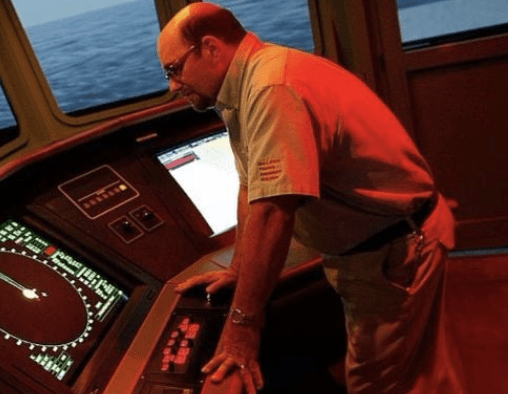Admiral James Foogo of the Center for Maritime Strategy says that if we ignore the supply chain, we lose the next war.
As our adversaries watch the events unfolding in the Ukraine, the US and her Allies could face similar challenges elsewhere. In order to be ready, it’s time to put some attention and resources into our #maritime #SupplyChain. https://t.co/a4eJSrLhgx
— Admiral James G. Foggo, USN (ret.) (@Admiral_Foggo) January 25, 2022
The Center for Maritime Strategy is America’s intellectual center for the study of the relationship between maritime power and national power, policy research that strengthens that relationship, and advocacy and education to advance those policies.
The think tank, housed inside the Navy League of the United States, conducts and supports policy research and advocacy efforts across a broad spectrum of issues that impact the United States’ position as a maritime nation. The mission of the Center for Maritime Strategy is to advance understanding of the contributions of the U.S. Navy, Marine Corps, Coast Guard and U.S.-flag Merchant Marine to American security and prosperity and educate and engage congressional and executive branch officials on the insights and recommendations derived from that research.
In an article on The Hill he says:
…As the drums of war beat on the border of Ukraine, the administration has decided to remove the military option from the table and instead punish a Russian invasion with the threat of unleashing the mother of all economic sanctions. I’m not sure that Vladimir Putin really cares. His mind is set. I predict that he is going to cross the line and invade Ukraine.
On the other side of the world.. other autocratic rulers maneuver to exploit the perceived weakness of American foreign policy. While North Korean leader Kim Jong Un tests U.S. resolve by launching missiles into the Sea of Japan, China’s President Xi Jinping weighs his options on Taiwan. A precipitous move by Xi would necessitate a decisive American response and could lead to a protracted conflict in the Western Pacific. Some believe that the current American Fleet, with a superior number of aircraft carrier strike groups and overwhelming asymmetric capabilities in the undersea domain, would eventually overwhelm the new and untested People’s Liberation Army-Navy. Others believe that China’s recent advances in hypersonic weapons and increasing numbers of ballistic missiles may turn a regional conflict into a broader war of attrition.
Should there be a protracted conflict in the Pacific, one of the key elements to victory will be sustainment and resupply of the forces fighting forward…
…Today, it is worth noting that the Chinese Shipping Corp. has a fleet of 1,371 vessels while the U.S.-flag fleet has fallen to 180 vessels. Furthermore, China State Shipbuilding Corp. delivered 184 ships for a total of 16 million tons in 2021, exceeding the entire inventory of our deepwater U.S. Merchant Marine in just one year. The ships sailing under U.S. flag are the only ones that can be counted upon to act in America’s interests in times of crisis. Why then, have we allowed our U.S.-flag fleet to atrophy from thousands of American vessels during the post-World War II era to under 200 today?
The consequences of overreliance on foreign vessels are now rippling across our nation, as American agricultural and manufacturing exports are stymied in port, while foreign vessels take empty containers back to Asia for the next haul.
Current estimates find that our Merchant Marine is approximately 1,800 personnel short of what would be required during a prolonged conflict. Increasing the number of U.S.-flag ships would increase the number of Merchant Marine, bolstering America’s economic and military security.
Increasing the size of the U.S.-flag fleet can be achieved through the implementation of minor changes to current U.S. policy related to international shipping. First, government cargo preference thresholds should be expanded to create greater demand for our flag ships. For example, the Food for Peace program, which provides American agricultural products to people in need around the world, currently requires that only 50 percent of its cargo be exported on U.S.-flag ships. The percentage of Food for Peace cargo committed to U.S. flag ships should be increased to the 75 percent threshold previously required.
Another approach would be through the implementation of bipartisan legislation for viable new commercial cargo preference programs. For example, the Energizing American Shipbuilding Act could result in the construction of dozens of new vessels.
A third option would be expanding the domestic Jones Act fleet with coastwise services of Dual Use Vessels (privately owned commercial ships with military utility-installed national defense features). DUVs would alleviate congestion, road wear and pollution along the I-5/I-95/I-10 corridors in peacetime by carrying domestic 53-foot tractor trailers/boxes along these American Marine Highways (AMHs). The DUVs would be quickly available to support a major deployment of military equipment through participation in the Voluntary Intermodal Sealift Agreement program.
More here. James Foggo is the dean for the Center for Maritime Strategy at the Navy League of the United States and a retired four-star admiral.
